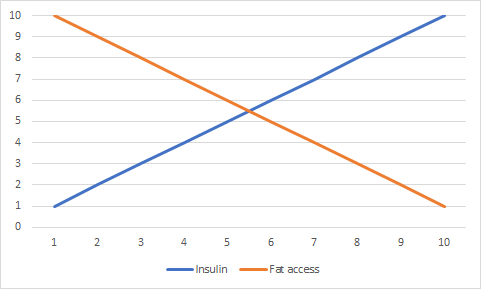I hear many different things about whether or not it is possible to gain fat while eating LCHF and in ketosis. Some people say that they “shed” the excess fat through their poop and urine, while others say that if you eat more calories than your body needs then “of course the excess is stored as fat”.
One of the things that sold me on keto in the first place was my understanding of how insulin works, and how critically important it is for storing body fat. Out of all the food groups carbohydrates are the ones who trigger insulin the most, then proteins, and then fat the least.
I guess my questions comes in two parts:
- What happens with your excess calories when eating LCHF and in ketosis?
- If excess is stored as fat, is insulin involved? If it is: how is it involved?
Thanks! 

